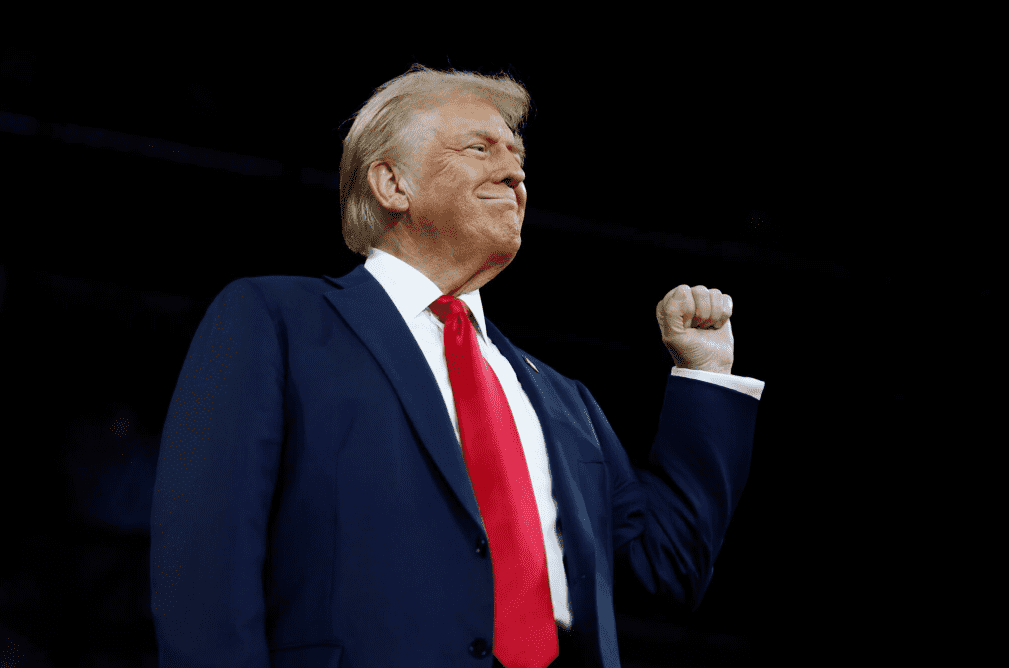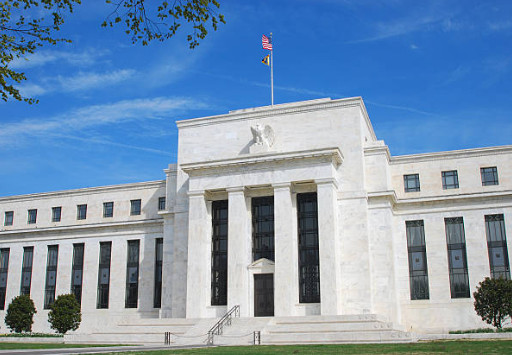[Reuters Analysis] Stagflation-lite could still make policymakers sweat: McGeever

By Jamie McGeever
ORLANDO, Florida, Feb 20 (Reuters) - Policymakers around the world may not like the word 'stagflation,' but they're going to hear a lot more it this year if the import tariffs U.S. President Donald Trump is threatening open up a global trade war.
"I don't use the word stagflation," Bank of England Governor Andrew Bailey said earlier this month. "It really doesn't have a particularly, frankly, precise meaning."
He is correct about the ambiguity. Stagflation was first coined to describe the painful mix of sustained economic stagnation and industrial-scale inflation that scarred Western economies in the 1970s. But it is now used to characterize almost any instance of both below-trend growth and above-trend inflation – essentially stagflation with a small 's.'
Even this more moderate version of the dreaded economic disease can cause serious headaches for policymakers whose blunt tools are designed to either boost growth or dampen inflation – not both at the same time.
And with economists in agreement that stagflation could result from tit-for-tat protectionist trade policies, Bailey won't be the only policymaker with a furrowed brow this year.
GOING GLOBAL
A mix of economic indicators and policymaker comments on Wednesday put a spotlight on the stagflationary menace.
Minutes from the Federal Reserve's January 28-29 policy meeting showed that firms are inclined to pass on higher input costs from tariffs to their customers, meaning inflation risks appear skewed to the upside. This came after January's retail sales shock last week reminded investors that the U.S. consumer is not invincible, even if growth is still holding up well enough.
And things could get a lot worse from here. PIMCO's Tiffany Wilding estimates that Trump's proposed tariffs on Mexico, Canada and China alone could raise U.S. inflation by 0.8 percentage point and cut growth by 1.2pp in the first year.
Figures from Britain, meanwhile, showed that inflation last month accelerated more than expected to 3%, well above the BoE's 2% target. This comes as growth is cooling at best, and flat-lining at worst.
Economists at Morgan Stanley and HSBC recently cut their 2025 UK GDP growth forecast to 0.9% from 1.4%, and the BoE said it expects inflation to peak later this year at 3.7% before receding. Bailey and colleagues are in a tight spot.
And intriguingly, two of the European Central Bank's top policymakers outlined the two sides of the debate on how much further, if at all, policy should be eased.
ECB board member and vocal hawk Isabel Schnabel argued that a "pause or halt" to the bank's rate cuts may be approaching, while Italian central bank chief Fabio Panetta argued that growth may be even weaker than feared.
Perhaps the case for the ECB cutting rates to below 'neutral,' as many observers had begun to build, isn't so clear-cut after all.
FLATTENING THE CURVE
These signals chime with Bank of America's latest global fund manager survey which shows that nearly 60% of respondents believe 'stagflation' will best describe the world economy over the next 12 months – the largest percentage in seven months.
BNP Paribas strategists reckon U.S. markets are underpricing stagflation risks. Since Trump's inauguration a month ago, the S&P 500 has ground out new highs, nominal and real Treasury yields have drifted lower, and the yield curve has gradually flattened.
But if traders and investors – many of whom are already on 'stagflation watch' – think growth is stagnating and inflation is not coming down, they will likely act accordingly.
That could mean a selloff in stocks and bonds, leading to heightened currency volatility. Britain, which relies on the 'kindness of strangers' to plug its large trade deficit, may be particularly vulnerable among developed economies, even more so emerging markets exposed to FX weakness and imported inflation.
The best advice to investors may be, if 'flation' stays high, prepare for 'stag'.
(The opinions expressed here are those of the author, a columnist for Reuters.)




